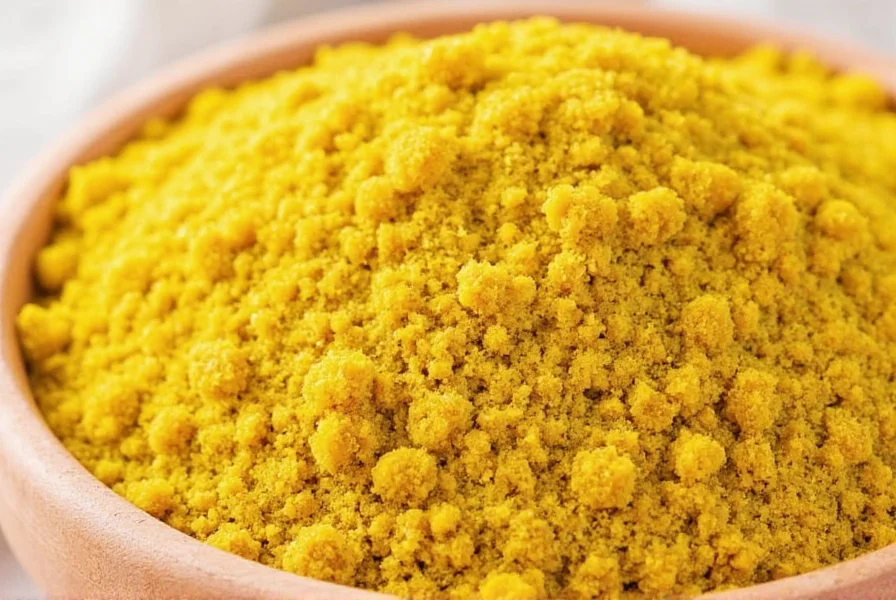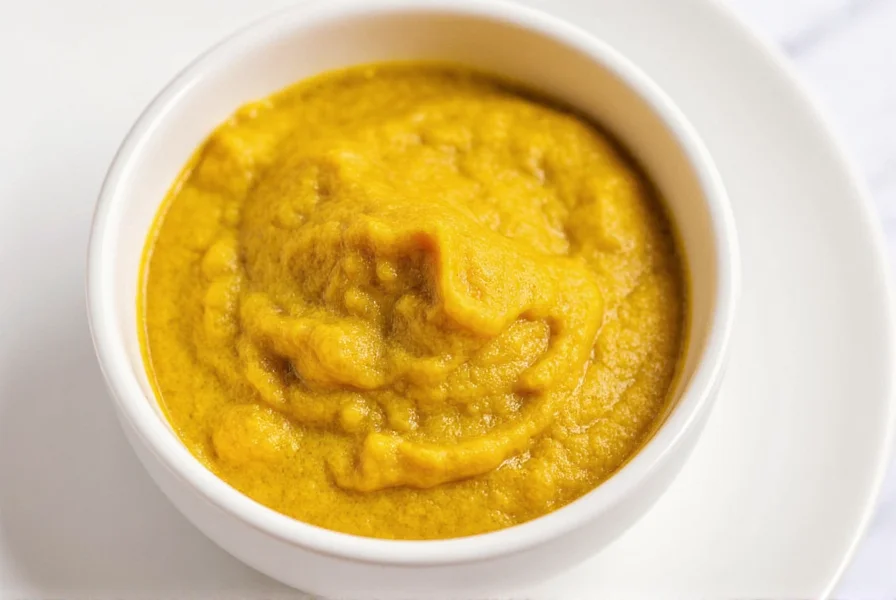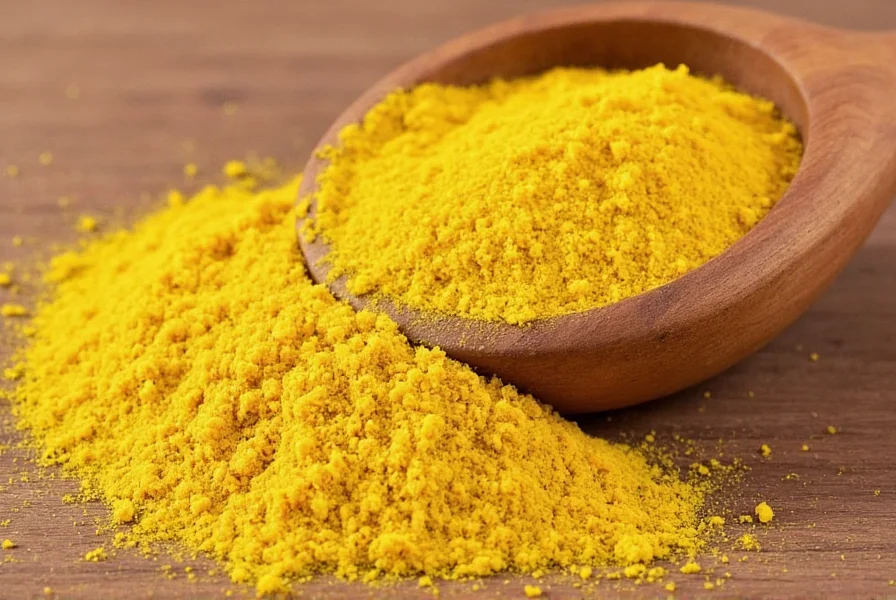When evaluating whether mustard is good for you, it's essential to understand the different varieties and their nutritional profiles. This comprehensive guide examines the science behind mustard's health properties, helping you make informed dietary choices.
Nutritional Composition of Mustard
Mustard seeds and prepared mustard offer a unique nutritional profile that varies by type. The primary components include beneficial phytochemicals like glucosinolates and selenium, along with minimal calories compared to many condiments.
| Mustard Type | Calories (per tbsp) | Protein (g) | Fat (g) | Carbs (g) | Key Nutrients |
|---|---|---|---|---|---|
| Yellow Mustard | 3-5 | 0.1 | 0 | 0.5 | Vitamin C, Turmeric |
| Dijon Mustard | 5-10 | 0.1 | 0.1 | 1.0 | Calcium, Magnesium |
| Whole Grain Mustard | 8-12 | 0.3 | 0.5 | 1.5 | Fiber, Selenium |
| Mustard Seeds (raw) | 59 | 3.1 | 3.3 | 3.7 | Vitamins B, Selenium, Magnesium |
The nutritional differences between mustard varieties explain why whole grain and minimally processed options generally provide greater health benefits than highly processed yellow mustards with added ingredients.

Science-Backed Health Benefits of Mustard
Research indicates several potential health advantages associated with consuming mustard, particularly when using varieties made from whole seeds with minimal processing.
Anti-Inflammatory Properties
Mustard contains compounds called glucosinolates that break down into isothiocyanates during digestion. These bioactive compounds demonstrate significant anti-inflammatory effects in multiple studies. A 2022 review published in Nutrients found that these compounds may help reduce inflammation markers associated with chronic diseases.
Antioxidant Capacity
The selenium content in mustard seeds functions as a powerful antioxidant. Selenium helps protect cells from damage caused by free radicals and supports proper thyroid function. Just one tablespoon of mustard seeds provides approximately 13% of the recommended daily selenium intake.
Cardiovascular Support
Emerging research suggests that regular consumption of mustard seeds may contribute to heart health. A study in the Journal of Food Science and Technology noted that mustard seed compounds might help regulate blood pressure and improve lipid profiles when consumed as part of a balanced diet.
Digestive Health Benefits
Mustard has traditionally been used to stimulate digestion. The compounds in mustard can increase saliva production and gastric juices, potentially improving digestion efficiency. Whole grain mustard varieties provide small amounts of dietary fiber that support gut health.
Potential Concerns with Mustard Consumption
While mustard offers health benefits, certain considerations are important when determining if mustard is good for you specifically.
Sodium Content Variations
Sodium levels vary significantly between mustard products. While plain mustard typically contains minimal sodium, many commercial varieties add salt for preservation and flavor. Those monitoring sodium intake should check labels carefully, as some brands contain up to 120mg of sodium per serving.
Added Ingredients in Commercial Mustards
Many store-bought mustards contain added sugars, preservatives, and artificial coloring. Yellow mustard often includes turmeric for color and vinegar for preservation, while some specialty mustards may contain honey or other sweeteners. For maximum health benefits, choose mustards with simple ingredient lists.
Allergic Reactions and Sensitivities
Though rare, some individuals may experience mustard allergies. Mustard allergy is recognized as a priority allergen in several countries. Symptoms can include skin reactions, digestive issues, or respiratory problems. Those with known seed allergies should exercise caution when trying mustard for the first time.

How to Choose the Healthiest Mustard
Not all mustard varieties offer equal health benefits. Consider these factors when selecting mustard products for optimal health advantages.
- Read ingredient labels - Choose products with minimal ingredients: mustard seeds, vinegar, water, and salt
- Prefer whole grain varieties - These retain more fiber and nutrients from the entire seed
- Avoid added sugars - Check for honey, corn syrup, or other sweeteners in the ingredients
- Consider sodium content - Opt for lower-sodium options if monitoring salt intake
- Make your own - Homemade mustard allows complete control over ingredients
Practical Ways to Incorporate Healthy Mustard into Your Diet
Using mustard as a condiment replacement can significantly reduce calorie and fat intake compared to alternatives like mayonnaise. Try these health-conscious applications:
- Use as a sandwich spread instead of mayonnaise (saves approximately 90 calories per tablespoon)
- Mix with Greek yogurt for a protein-rich dipping sauce
- Add to salad dressings for tang without excess calories
- Use in marinades for lean proteins like chicken or fish
- Stir into roasted vegetables for added flavor complexity
For those exploring whether mustard is good for weight management, its low-calorie profile makes it an excellent condiment choice. A single tablespoon contains only 3-15 calories depending on the variety, compared to 90-100 calories in the same amount of mayonnaise.
Mustard in Traditional Medicine and Modern Research
Mustard has been used in traditional medicine systems for centuries. Ayurvedic practices have utilized mustard seeds for respiratory support, while traditional Chinese medicine has employed mustard for its warming properties. Modern research is beginning to validate some of these traditional uses, particularly regarding mustard's anti-inflammatory effects.
A 2023 systematic review in Phytotherapy Research examined multiple studies on mustard compounds and concluded that "the bioactive components in mustard seeds demonstrate promising anti-inflammatory and antioxidant properties that warrant further clinical investigation." However, researchers caution that most evidence comes from laboratory and animal studies, with limited human clinical trials.
Frequently Asked Questions About Mustard and Health
Is mustard good for weight loss?
Mustard can support weight loss efforts as a very low-calorie condiment alternative. One tablespoon of most mustard varieties contains only 3-15 calories, compared to 90-100 calories in the same amount of mayonnaise. Using mustard instead of higher-calorie sauces can help reduce overall calorie intake while still providing flavor. However, mustard alone won't cause weight loss - it should be part of an overall balanced diet and healthy lifestyle.
What's the healthiest type of mustard to eat?
Whole grain mustard generally offers the most health benefits as it contains the entire mustard seed, preserving more fiber and nutrients. Look for varieties with minimal ingredients - ideally just mustard seeds, vinegar, water, and salt. Avoid mustards with added sugars, artificial colors, or preservatives. Dijon mustard can also be a healthy choice if it contains simple ingredients, while traditional yellow mustard often includes turmeric (which has its own health benefits) but may have more vinegar and salt.
Does mustard have anti-inflammatory properties?
Yes, mustard contains compounds called glucosinolates that break down into isothiocyanates during digestion. Multiple studies have shown these compounds possess significant anti-inflammatory properties. Research published in Nutrients (2022) found that these bioactive compounds may help reduce inflammation markers associated with chronic conditions. The anti-inflammatory effects appear strongest in minimally processed mustard varieties that retain more of the original seed compounds.
Can mustard help lower blood pressure?
Some research suggests mustard seeds may contribute to blood pressure regulation. A study in the Journal of Food Science and Technology noted potential cardiovascular benefits from mustard seed compounds, including possible effects on blood pressure. The magnesium content in mustard seeds also supports healthy blood vessel function. However, mustard should not be considered a treatment for hypertension - those with blood pressure concerns should follow medical advice and maintain a balanced diet rather than relying on any single food.
How much mustard should I eat daily for health benefits?
There's no established daily recommendation for mustard consumption, but moderate use as a condiment provides potential benefits without drawbacks. One to two tablespoons daily as part of a balanced diet appears reasonable for most people. Those monitoring sodium intake should be mindful of salt content in commercial mustards. For maximum benefit, choose varieties with simple ingredients and incorporate mustard as a replacement for higher-calorie condiments rather than adding it to an already unhealthy diet.











 浙公网安备
33010002000092号
浙公网安备
33010002000092号 浙B2-20120091-4
浙B2-20120091-4